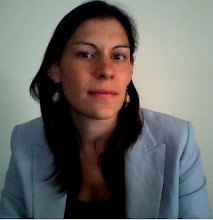Half Measures
NGOs reject U.N. Monterrey Consensus
In These Times
April 29, 2002
By Laurence Pantin
MONTERREY, MEXICO- Representatives of civil society, the business sector, international finance and heads of states from over 50 countries gathered here from March 18 to 22 for a U.N. conference on aid for developing countries.
NGOs from over 80 countries overwhelmingly rejected the conference's final declaration, known as the Monterrey Consensus, however, saying it doesn't take into account their proposals and will not meet the conference's goals.
For the first time, the U. N. International Conference on Financing for Development brought representatives from non-governmental organizations together with world leaders and global financial organizations, including the World Bank and the IMF. The conference's professed
goal, dating from the U.N. Millenium Summit, was to cut global poverty in half and provide universal education by 2015.
June Zeitlin, executive director of the Women's Environment and Development Organization, says the conference did bring together those concerned with the issues of poverty and economic
inequality in an unprecedented way. "In that sense, the process was more open," she says. "Maybe that's why our expectations were higher that the results would reflect our input."
In rejecting the consensus, NGOs said that their criticisms of neoliberal economic development were not taken into account in the documento. The consensus affirms free trade as one of the primary solutions to world poverty, echoing the statements of many world leaders during the conference.
For this reason, Liliana Flores, a leader of the Barzon Debtors' movement, an anti-free trade organization from Mexico, decided not to attend the conference. Instead, she and her group demonstrated outside, along with about 3,000 others, she says, to denounce "neoliberal policy as the institutional policy for the world."
But many NGOs attending the conference knew that their participation could be used to bring legitimacy to the consensus. "I think we are quite aware of the danger of being co-opted," says Zo Randriamo, a program manager at the Third World Network in Ghana, "and ending up legitimizing something we are fighting against."
"We also have to be clear that there’s a very strong anti-globalization, anti-trade liberalization movement out there", says Mahau Pheko, coordinator of the International Gender and Trade Network in South Africa. "And I think we have to understand this conference in that context." The U.N. attempt to include civil society in its processesis not a genuine effort, Flores adds: "What they are trying to do is neutralize citizens' protests".
In what was also a first-time move, "roundtable" discussions were held at the conference to allow all those with a stake in a specific issue to converse face to face. Laura Frade, coordinator of the Women's Eyes on the Multilaterals Latin American Campaign, says she was able to add to "the national and international agenda a theme that was not there: democratizing the International Monetary Fund and the World Bank," and to secure specific victories. In response to her comments during a session, Horst Köhler, managing director of the International Monetary Fund, pledged to promote the participation of women on the IMF board.
But others are still resistant to civil society's participation. Poul Nielson, head of Development and Humanitarian Aid for the European Commission, commented sharply that if NGOs want to play a role in a democracy, "they should get elected".
Still, NGOs say the Monterrey conference's inclusive format should be extended to future conferences, and organizers seem to agree. "We will never [again] do less than what has been done here," says Oscar de Rojas, the conference's executive coordinator. Aid and development organizations are already preparing for the next conference on sustainable development, which will take place in Johannesburg in August.
The last section of the Monterrey consensus, entitled "Staying engaged," sets guidelines for follow-up actions. NGOs, said Randriamaro of the Thirld World Network, are "staying engaged...but not getting married."
Suscribirse a:
Enviar comentarios (Atom)

No hay comentarios:
Publicar un comentario